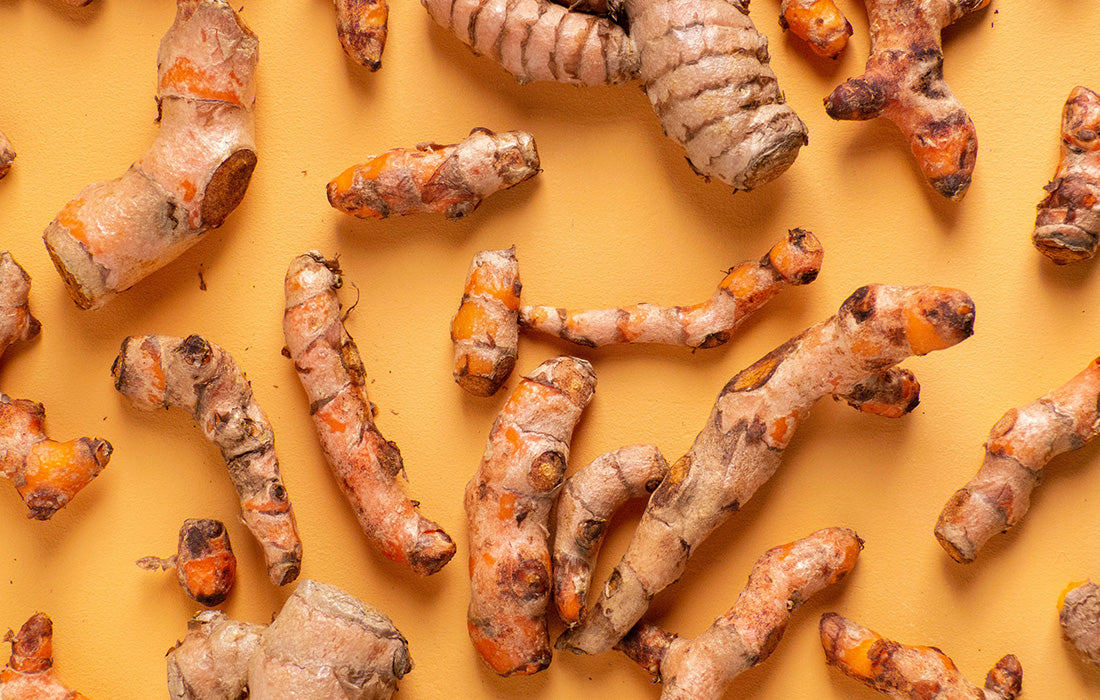It’s Friday and you know what that means...
Ben answers 3 of his favourite questions from the week!
Congratulations to Tess, Greg and Maria who all won $20 gift vouchers just for asking Ben a question. You can always ask Ben a question at ben@13seeds.com.au
This week’s questions are:
- Tess was curious “Any other natural products you suggest for anti-inflammation?”
- Greg wanted to know “Raw or cooked vegetables? What’s better for you?”
- Maria was wondering “I’m a 59 year-old woman who is mobile. How many calories should I consume a day”
1. Any other natural products you suggest for anti-inflammation?
I always get questions about fish oil and hemp seed oil. While these products are amazing in their own right due to their omega fatty acid content. There is another anti-inflammatory product that is often overlooked… let me introduce you to curcumin, or you may know it better as ‘turmeric’.
I actually wrote an article earlier this week all about the powerful anti-inflammatory effects of turmeric that you can access here.
Let me give you a brief run down though…
Turmeric contains a compound called curcumin that is believed to be one of the most potent natural anti-inflammatories on the planet!
Curcumin is believed to have these potent anti-inflammatory effects by reducing inflammatory chemicals in the body that can lead to chronic inflammatory conditions that include arthritis, Alzheimer’s disease, depression, heart disease, diabetes and even cancer! (1)
Not to mention, curcumin is also a potent antioxidant that can help to reduce ‘oxidative stress’ and neutralize free radicals in the body, that is linked to the development of health conditions. Curcumin can also boost your own antioxidant defence systems such as glutathione in the body! (2)(3)
Don’t forget to get your turmeric in a supplement form that contains lots of curcumin and piperine (found in black pepper) to improve absorption (4).
2. Raw or cooked vegetables? What’s better for you?
Well, this is a complex answer... Let me explain!
There are actually some foods that are better eaten raw than cooked, and some foods that are better eaten cooked than raw!
For example, some nutrients can be lost in the cooking process. In particular, water soluble vitamins (absorbed in water) that include vitamin C and B vitamins. It’s been estimated that boiling vegetables can reduce the content of water-soluble vitamins by as much as 50-60%. Other fat-soluble nutrients that include vitamin A, D, E, & K seem to be less affected by cooking. (5)(6)(7).
Steaming, roasting and stir-frying are better cooking alternatives to boiling in regards to maintaining nutrients in foods (8)(9).
What foods are better consumed raw?
- Cruciferous vegetables (eg. broccoli, cauliflower, and cabbage) contain a powerful antioxidant called ‘sulforaphane’ that has anti-cancer properties. Unfortunately, sulforaphane can be lost when heated. For example, raw broccoli contains approximately three times the amount of sulforaphane that cooked broccoli. (10)(11)
What foods are better consumed cooked?
- Raw spinach is high in oxalates, that reduce calcium from being absorbed into the body. Cooking spinach can help to break down oxalates and may improve calcium absorption (12)
- Cooking tomatoes can help to increase lycopene, a type of antioxidant found in tomatoes (13)
- Soaking and cooking legumes, grains and beans can help to reduce phytic acid and lectin found in these foods that may reduce the absorption of iron, zinc, calcium, and magnesium (15)
So, what’s the bottom line?
Eat your foods however you like them best. By increasing your fruit, vegetable, wholegrain and legume intake you’re already increasing your overall nutrient intake that supports good health and these effects may be negligible in the overall picture!
3. I’m a 59 year-old woman who is mobile. How many calories should I consume a day?
Calories is a word we use that describes energy from foods. Your energy balance is a balance of calories consumed through eating and drinking compared to calories burned through physical activity.
What you eat and drink is energy in, what you burn through physical activity is energy out. Weight gain can occur when we have an energy imbalance, too much energy in (from food and drinks) and not enough energy out (from exercise) (16)
While calories matter when it comes to energy balance, it can also create unhealthy relationships around food.
Energy requirements will differ based on age, sex, body size and physical activity. That being said it could be anywhere from roughly 1800-2200 calories for this age group. If you need more information about energy requirements you can find it at https://www.nrv.gov.au/dietary-energy
If you have any questions or are interested in nutrition consulting, feel free to email our head nutritionist Ben at ben@13seeds.com.au
Disclaimer:
This article does not constitute medical advice and does not take into consideration your personal circumstances. Please see your medical professional before implementing the above.
- https://www.ncbi.nlm.nih.gov/pmc/articles/PMC5805548/
- https://pubmed.ncbi.nlm.nih.gov/15650394/
- https://www.tandfonline.com/doi/abs/10.1080/02772248.2013.829061
- https://pubmed.ncbi.nlm.nih.gov/9619120/
- https://pubmed.ncbi.nlm.nih.gov/11951583/
- https://pubmed.ncbi.nlm.nih.gov/2081984/
- https://pubmed.ncbi.nlm.nih.gov/2081989/
- https://www.ncbi.nlm.nih.gov/pmc/articles/PMC2722699/
- https://www.ncbi.nlm.nih.gov/pmc/articles/PMC3866734/
- https://www.ncbi.nlm.nih.gov/pubmed/11525594
- https://pubmed.ncbi.nlm.nih.gov/18950181/
- https://pubmed.ncbi.nlm.nih.gov/2801588/
- https://pubmed.ncbi.nlm.nih.gov/11982434/
- https://pubmed.ncbi.nlm.nih.gov/10775391/
- https://www.ncbi.nlm.nih.gov/pmc/articles/PMC4325021/
- https://www.ncbi.nlm.nih.gov/pmc/articles/PMC3401553/







